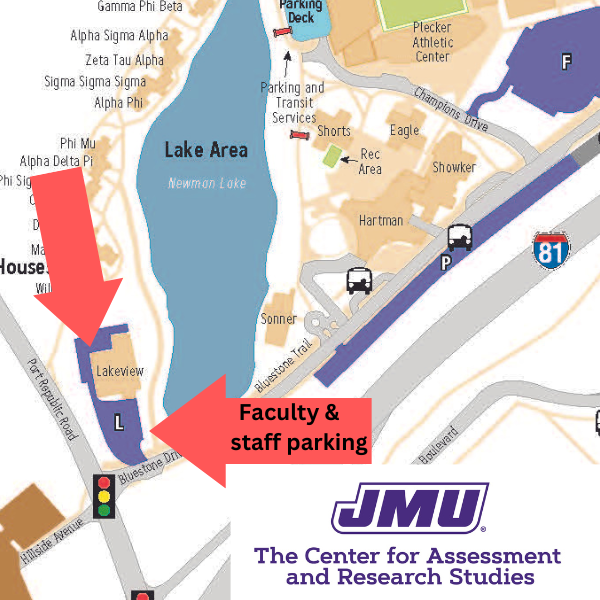
Consultations will be scheduled by clicking the button below. Meetings can be in person or virtual, depending on your preference.
SASS provides free assessment consultation services to student affairs professionals at JMU involved in assessing student learning and development as a function of intentional programming. We provide a maximum of 1 hour per week of free consulting - either by email or appointment. Please review the information on this page prior to scheduling a consultation appointment. To enter the scheduling website click "Schedule an Appointment" below:
The first time you visit the site, you will be asked to create an account. Once your account has been created, you will be able to view the SASS consultation calendar and book an available time with any of our consultants.
Consultation Services Provided
- Techniques for writing learning or developmental objectives that are student focused, reasonable, & measurable
- Techniques for creating program-to-objective maps
- Strategies for locating and selecting an appropriate instrument focused on learning or developmental outcomes
- Strategies for collecting validity evidence
- Item writing techniques
- Strategies for developing rubrics
- Feedback on items written by student affairs professionals to measure student learning outcomes
- Feedback on data collection designs
- Strategies for data entry
- Strategies for measuring and assessing implementation fidelity
- Quantitative data analysis
- Basic interpretations of statistical results for clients to include in a report
Consultation Services NOT Provided
- Report writing and report editing (see guide to reporting results; see supportive materials for report writing)
- Framing questions of interest or determining importance of program objectives
- Assistance with program theory or curriculum development (contact the Student Affairs Assessment Advisory Council for support)
- Writing items aimed to measure program objectives
- Implementation of program interventions
- Collection of data for program assessment
- Data entry or transcriptions
- Qualitative data analysis
- Support developing (or analyzing data from) satisfaction surveys or needs/use assessments
(unsure whether your assessment falls under one of these categories? Check out this video) - Presenting assessment results to stakeholders
- Professional development workshops (workshops are available on request, but are not part of our consulting services; please email finneysj@jmu.edu if you would like to request a workshop)
Before Your Appointment
- Educational materials, examples, and videos have been created to support your assessment work. We strongly recommend working through these materials prior to your appointment, as SASS consultants will likely refer back to these resources.
- Attach all necessary files/documents to the appointment form in the scheduling system.
- For a virtual meeting, you will be sent a link to your meeting from your consultant after scheduling the meeting. For an in-person meeting, your consultant will meet you in the lobby of Lakeview Hall and walk you to the meeting room.

